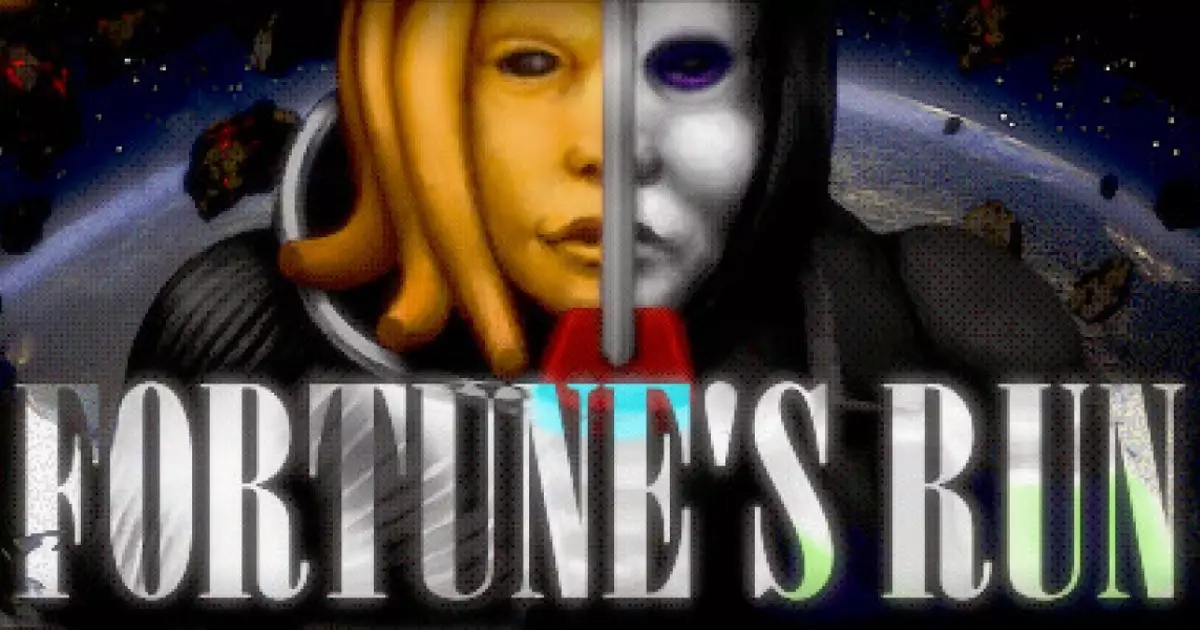In the ever-evolving landscape of video game development, the story of Fortune’s Run serves as a poignant reminder of the fragility of creative pursuits, particularly when personal crises collide with professional aspirations. As the project’s sole creator, known as Dizzie, faces incarceration for a violent crime after a protracted legal battle, the video game community grapples with the implications of such abrupt developments. This article explores the complexities of the situation, ranging from its impact on the game’s future to the broader context of mental health in the gaming industry.
Fortune’s Run, an ambitious immersive sim-shooter, was initially lauded for its innovative gameplay and immersive environments. However, the journey has taken a disheartening turn with Dizzie’s recent announcement that the project will be temporarily shelved due to their upcoming incarceration. In the Steam post, Dizzie candidly reflects on a tumultuous past, emphasizing that the criminal charges stem from events predating their career in game development. This honesty, while commendable, raises difficult questions about how personal demons can disrupt professional ambitions.
The inclusion of Arachne’s recent departure from the development team further complicates the narrative. Although Dizzie asserts that Arachne left for unrelated reasons—specifically, health complications following an unsuccessful surgical procedure—the timing of both announcements cannot be ignored. This situation underscores the vulnerabilities developers face in an increasingly demanding industry where pressure can lead to mental and physical strain.
Consequences of Actions and Accountability
Dizzie’s acknowledgment of their violent past and its repercussions is both unsettling and revealing. The idea that one’s history can intrude upon their current endeavors is not new, yet the brutal reality of legal consequences manifests itself vividly here. While many creative fields demand immense dedication and focus, Dizzie’s situation exemplifies the perils of allowing one’s past to influence their trajectory.
In recent years, the gaming community has begun to engage more deeply with issues surrounding mental health and personal accountability. Dizzie’s account serves as an unfortunate case study in how personal issues can cascade into professional repercussions, resulting in not only halted projects but also strained relationships within teams. Arachne’s exit and Dizzie’s subsequent solo endeavor illustrate the fragility of collaborative creativity and the precarious nature of indie development.
Despite these challenges, there is a glimmer of hope for Fortune’s Run. Dizzie remains optimistic about their ability to resume development upon release, revealing that much of the game’s content is already in a playable state. However, the reality of a three-year hiatus looms large—a significant span in the world of game development where industry trends and player expectations can shift dramatically.
Undoubtedly, the gaming landscape is not the same as it was when Fortune’s Run was initially conceived. Indie’s space continues to evolve, with constantly emerging technologies and gameplay styles vying for players’ attention. Dizzie’s passion for game development, expressed in the Steam post, serves as an important reminder of the human element behind these creations. Yet, it also raises questions about how such fervor can persist amidst mounting external pressures.
The reaction from players and the broader gaming community will play a pivotal role in the future of Fortune’s Run. Communities often rally around developers facing adversity, providing the emotional and financial support they need to rebuild. While Dizzie’s actions have undeniably led to disappointment among fans, it is crucial to consider opportunities for redemption and healing through community engagement.
Moreover, the interplay between personal struggles and professional endeavors is a recurring theme in creative industries. As discussions about mental health become more prevalent, it is vital for creators like Dizzie to have access to resources and support systems that address not only their professional responsibilities but also their wellbeing.
The tale of Fortune’s Run encapsulates the intricate interplay of personal and professional narratives within the gaming world. While the future of the project remains uncertain, it underscores the human stories behind video games—the triumphs, the failures, and the struggles that inform creativity. As we witness Dizzie’s journey unfold, it challenges us to consider the importance of compassion and understanding within our creative communities, ultimately revealing that behind every game, an artist’s life is often as complex and compelling as the stories told within their creations.


Leave a Reply